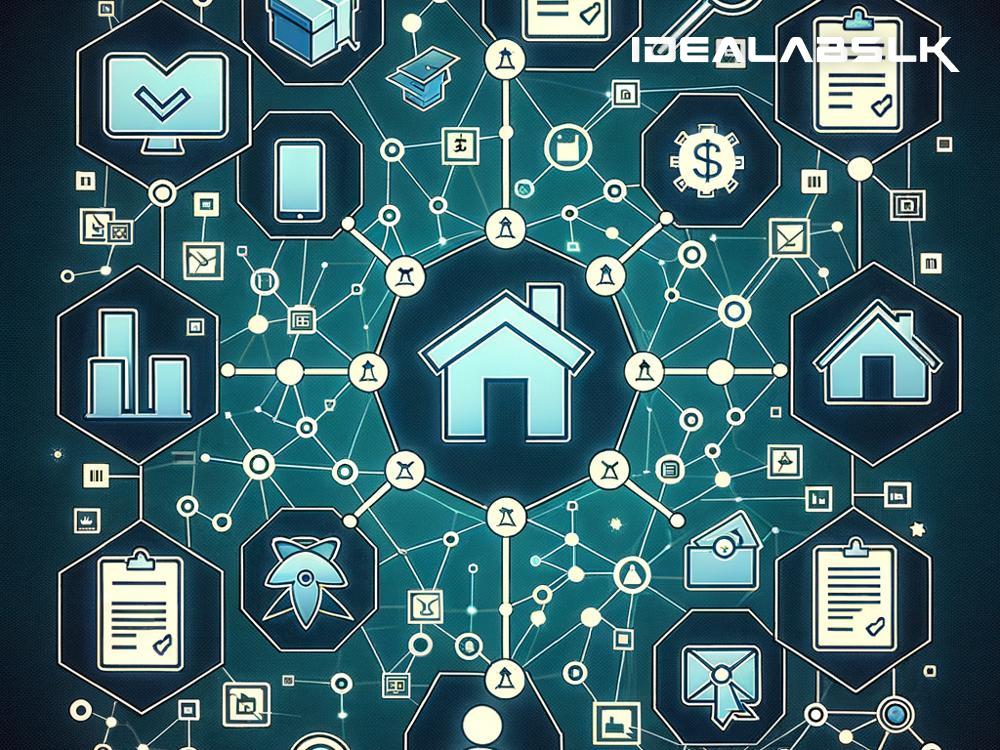Blockchain in Property Ownership Recording: Simplifying Real Estate for Everyone
In recent years, the buzz around blockchain technology has skyrocketed. While it's most commonly associated with digital currencies like Bitcoin, blockchain's potential stretches far beyond just cryptocurrency. One of the most promising applications lies within the real estate sector, especially in property ownership recording. For many, the process of buying or selling property is overly complex, fraught with inefficiencies, and can be ripe for fraud. However, blockchain might just be the game-changer we've long awaited.
Understanding Blockchain
Before diving into its applications in real estate, let's break down what blockchain is. Imagine it as a digital ledger. But, unlike a traditional ledger, this one is decentralized and distributed across a network of computers. Each block in the chain contains a number of transactions; every time a new transaction occurs, a record of it is added to every participant's ledger. What makes blockchain uniquely secure is its immutability; once data has been recorded, it can't be altered without altering all subsequent blocks and the consensus of the network. This feature provides a level of transparency and security that is particularly attractive for real estate transactions.
The Challenges of Traditional Property Ownership Records
Traditionally, property transactions are a paper-heavy process, involving various parties including buyers, sellers, lawyers, and government entities. This not only makes the process cumbersome but also increases the chances of fraud. Lost documents, forgeries, and disputes over property titles can delay transactions or hinder them altogether.
Moreover, the centralized nature of these records means there's a single point of failure. If the system is hacked or records are damaged or lost, it can be difficult to recover the true record of ownership. This system also lacks transparency, as it's often challenging to trace the history of a property's ownership and verify claims.
How Blockchain Revolutionizes Property Ownership Records
Blockchain introduces a level of efficiency, security, and transparency previously unseen in the real estate sector. Let's explore how:
-
Decentralized Records: With blockchain, property ownership records are stored across a network, eliminating the single point of failure. This significantly reduces the risk of loss, theft, or corruption of data.
-
Transparency and Trust: Each transaction in the blockchain is visible to all participants and can be verified at any time. This increases trust among parties, as ownership and transaction history can be easily traced and confirmed.
-
Efficiency and Speed: Blockchain can streamline real estate transactions by automating many of the steps involved, reducing the need for middlemen, and cutting down on paperwork. Transactions that used to take weeks or months could potentially be completed in days or even hours.
-
Security and Fraud Prevention: The immutable nature of blockchain makes it nearly impossible to alter records. This drastically reduces the potential for fraud, such as forging documents or claiming false ownership.
-
Smart Contracts: These are self-executing contracts with the terms of the agreement directly written into lines of code. In real estate, smart contracts could automatically transfer ownership once conditions are met, like the receipt of payment, without the need for intermediaries.
Real World Applications and Future Prospects
Several countries and companies are already experimenting with blockchain for property transactions. For instance, Sweden has been testing a blockchain-based land registry system to simplify property sales and ensure more secure transactions. Meanwhile, startups and tech firms are developing platforms that could make buying, selling, leasing, and managing property much easier and more transparent for everyone involved.
The potential for blockchain in real estate is vast, but it's not without challenges. There are regulatory hurdles to overcome, and the widespread adoption of blockchain technology requires significant shifts in how property transactions are traditionally handled. Nonetheless, the benefits it offers could lead to a transformative change in the real estate sector.
Conclusion
Blockchain technology holds the promise of revolutionizing property ownership recording. It offers a more secure, transparent, and efficient process for real estate transactions, which could benefit buyers, sellers, and the industry as a whole. While there are still challenges to be addressed, the steps being taken toward integrating blockchain into real estate show a promising future where buying or selling property is accessible, straightforward, and secure for everyone involved. As we move forward, keeping an eye on this exciting development will surely be worthwhile.

